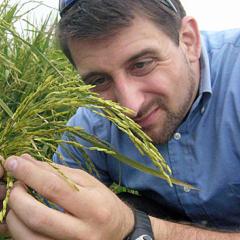Mulvaney and Krupnik publish on zero-tolerance for genetic pollution in California rice farming
California’s Rice Certification Act (RCA) requires specific planting and handling protocols for rice, including genetically engineered (GE) rice that could pose commercial risks to rice growers. Based on interviews with growers, marketers, activists, and other stakeholders, as well as secondary sources, this paper describes this policy’s emergence and evolution using a global commodity chain approach. Several studies suggest that GE herbicide tolerant rice would yield profits for California growers struggling with rising weed control costs. Instead, GE rice was greeted with scrutiny by the California industry and legislators because Asian export markets had zero-tolerance for GE rice contamination. This paper examines how nature’s agency—the “unruly” qualities of agro-ecosystem functions, the movement of wildlife, seeds, and pollen across space—strengthened narratives about risk and industry consensus around zero-tolerance rules for GE rice. In addition to recounting the origins of zero-tolerance demands and containment regulations for California rice, this research explores how calls for food safety and zero-tolerance rules are mobilized as surrogate for wider political economic aims.
